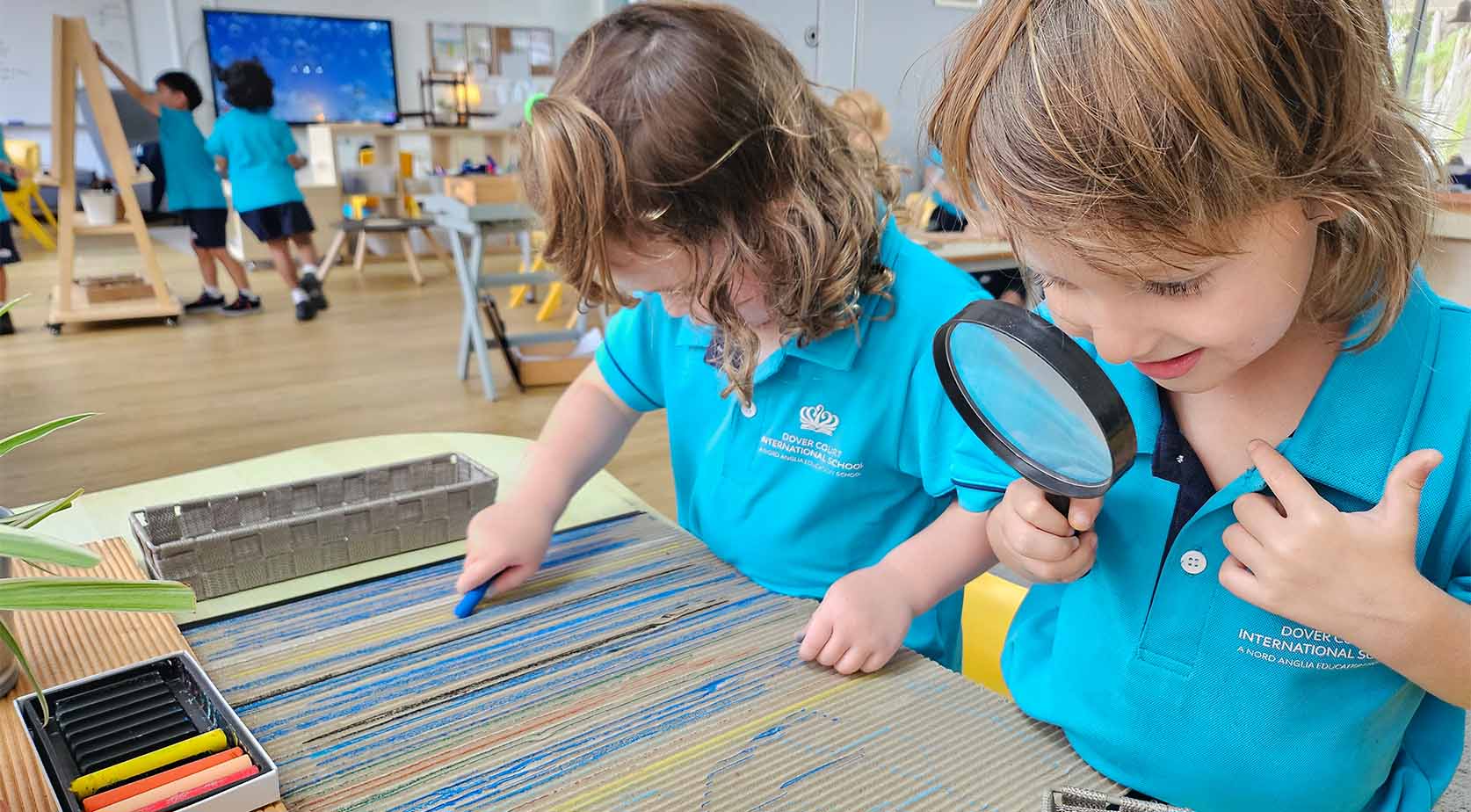How to encourage good reading habits
How do we get our children interested in reading books in a world full of screens? Our learning support teacher Louise Short shares her top tips.
In today’s world, children are exposed to many forms of digital literacy. This is essential if we are to equip children with 21st Century skills. However some recent articles have been published saying that there is evidence that people are less likely to read any books in any format. The ability for students to access a plethora of information on a daily basis via the internet, does not make this a surprising fact. It should however set alarm bells ringing for anyone involved in educating children.
It has been well documented that reading not only influences students’ breadth of knowledge but also it has an impact on their vocabulary acquisition. However, more recently, brain scans using MRI technology, have shown that reading affects the ability to empathize with another person’s experiences. This is an incredibly important life skill for young people to develop for their future personal and professional lives.
Louise Short, one of our learning support teachers, explains how Dover Court International School nurtures happy readers. The Dover Court Learning Support Department have started to use the technique of Visualizing and Verbalising with students who are taking part in Writing Intervention. This builds on the theory used with athletes in the United States of America, who have seen dramatically enhanced performances after they have practised deep visualisation techniques, irrespective of physical practice. A recent article in Psychology Today says that the act of reading (and more specifically, reading fiction) also flexes the reader’s proverbial imagination muscle. This improved ability to visualize, exercises the mind and helps us to understand a variety of topics. In doing so, we can make connections between ideas that would not otherwise exist. The mental strength gained through reading allows our creativity to shine and helps to develop out-of-the box thinking. Many educators will be aware of “De Bono’s Thinking Hats”. This is Green Hat Thinking.
At Dover Court we understand the value of reading. We acknowledge the immense power it can have to change students’ writing skills. We promote the use of digital communication and reading physical books in our libraries, to improve knowledge of the world around us and to stimulate our creativity and we teach our students about the links between reading and improved articulation.
So how can you overcome the habit of “ information snatching” and encourage children, who may be reluctant readers, to pick up an actual book and read in a more sustained way.
Where possible turn reading into a fun activity. Allow children to choose books they want to read (though you may need to steer some children in the right direction or they may get stuck reading one genre).
Interrupt a mundane task and stop to read. This may help children to move away from the notion that reading is “boring” or “just something that needs to be done” and it may help them to associate reading with a sense of fun and relaxation.
Read stories aloud to children; even older children enjoy this activity. This may help children to access books that they wouldn’t normally choose for themselves and spike an interest. It also helps them to see the relationship with print and speech. What child or adult doesn’t enjoy funny, animated voices when listening to, or reading, a story.
Use positive reinforcement. Compliment children when they are reading books. There is no harm in acknowledging that it is a difficult skill to master. Don’t overdo it though, or this could turn them off.
Don’t ask them to explain every book they read or write book reports as it may become associated with homework, rather than pleasure.
Show an enthusiasm for book fairs and libraries. The theory and practice is that enthusiasm is infectious.
Don’t always insist that children read “classic books”. It is perfectly acceptable for them to read a variety of texts. There is a term “Bait the hook to suit the fish!” Cookery books, comics, short stories, magazine articles, poetry, contemporary fiction, traditional fiction, reference books and of course some online materials. The trick to building reading stamina, is focusing on the word “variety”. As an adult we would not relish being exposed to only one type of book. Young people share those feelings too.
Encourage children to write their own stories from a very young age. This will enhance their appreciation of books. They can not only work out the text they want, but also design a cover for their story. They can write a short synopsis of the story on the back page. This will introduce them to the term “blurb”. If they find writing challenging then help them out. It is supposed to be a pleasurable activity - not a punishment.
The British author Neil Gaiman once said, “ A book is a dream that you hold in your hand “.
Whilst he was probably referring to the ability of books to carry you away into an imaginary world, it could also be interpreted as reading being a way of reaching your goals. With the latter in mind, we all need to become reading champions and continually promote books by being role models. We cannot or should not expect children to read books, if we do not do it ourselves.
At Dover Court we are continually acknowledging, improving and embracing digital literacy and the place it has as a 21st century learning tool, but we also encourage our students to put away their kindles and iPads for a while and pick up a book. We encourage you to do the same. In doing so, you will be helping young people to acquire important skills for their own personal and professional success. It really is a game-changer.







